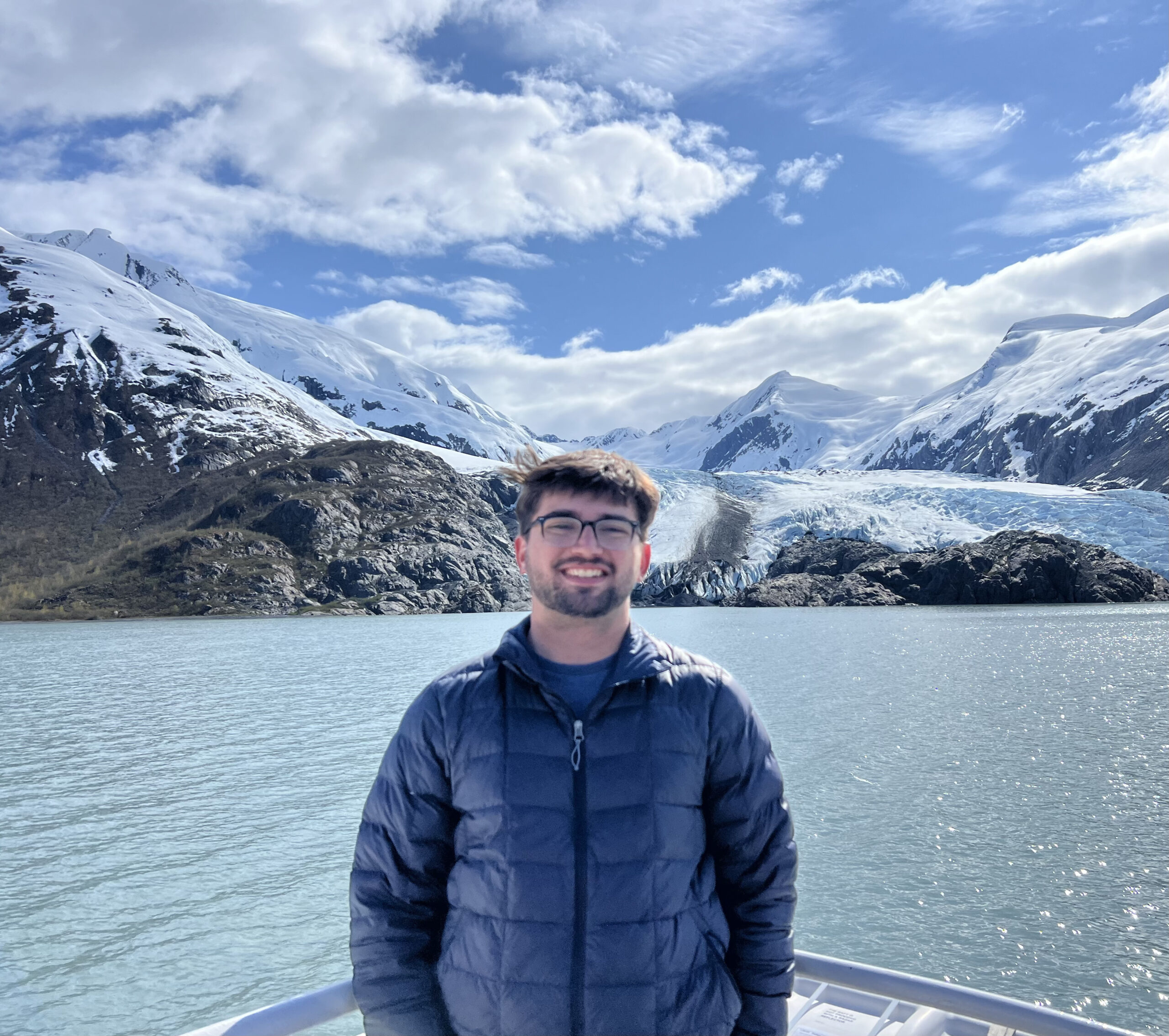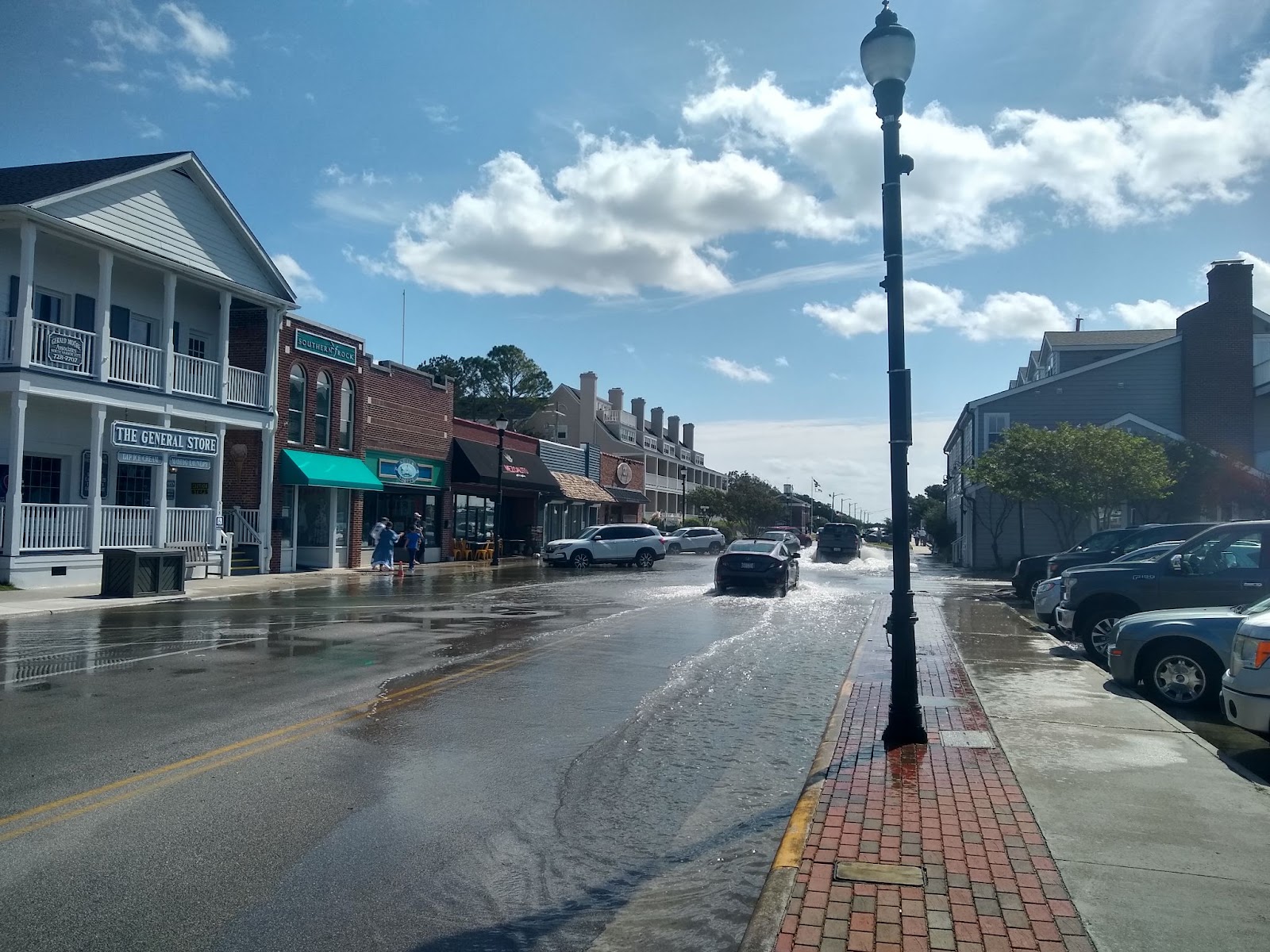2020 Knauss Fellows Prepare to Serve in D.C.
For Immediate Release
Contact:
Katie Mosher, kmosher@ncsu.edu, 919-515-9069
John Fear, jmfear@ncsu.edu, 919-515-9104
The National Sea Grant Office recently announced the placements of the 2020 Knauss Fellowship winners. Four graduate students nominated by North Carolina Sea Grant are among the group of 69 fellows: Margaret Chory, Gabrielle Corradino, Cheyenne Stienbarger and Jessamin Straub.
The Knauss Fellowship is a year-long program for graduate students who are interested in national policy issues affecting ocean, coastal and Great Lakes resources. Successful applicants are matched with host offices within the executive and legislative branches of the federal government.
“With each year and class, we continue to be more impressed with the Sea Grant Knauss fellows,” says Jonathan Pennock, National Sea Grant College Program director. “They bring fresh perspectives and experiences to the coastal and marine science and policy work happening in D.C., and they continue to raise the bar for us all.”
The fellowship honors John A. Knauss, a founder of the National Sea Grant program, who also served as NOAA administrator and dean of the University of Rhode Island’s Graduate School of Oceanography.
“A Knauss Fellowship is an excellent opportunity to develop career-long personal and professional relationships,” says Susan White, executive director of North Carolina Sea Grant. “Our fellows always offer high levels of professionalism, expertise and enthusiasm for what they do.”
The 2020 North Carolina finalists have a wide array of research interests and experiences. The fellowship year starts Feb. 1.

Margaret Chory recently graduated from Duke University with a master’s in environmental management, with a concentration in coastal environmental management. Originally from Weston, Massachusetts, she studied environmental science and public policy at Harvard University as an undergraduate. Her research interests include fisheries management, infrastructure and policy, as well as global conservation policies and planning. Chory will be serving the National Sea Grant College Program as a socioeconomics specialist.
“Working with Sea Grant’s social science and economics lead, I will have the opportunity to see how the social sciences fit into the broader Sea Grant research portfolio, and make connections at both the national and state level,” Chory says. “This placement uniquely will allow me to see first hand how a large NOAA program like Sea Grant is run, while also experiencing how its initiatives play out on the ground level in the 34-program network.”
Gabrielle Corradino is pursuing her doctorate in biological oceanography at North Carolina State University. Her work focuses on nanoplankton, and she studies the characteristics of a previously unknown nanoplankton species that she isolated from the waters of North Carolina. Originally from New Haven, Connecticut, Corradino received her bachelor’s in biology from Salve Regina University and her master’s in biology from Southern Connecticut State University. She will serve in the NOAA Office of Education as a science education and policy fellow.
“This next year as a Knauss Fellow is going to push me outside of my research comfort zone and into the world of science policy,” Corradino says. “I am looking forward to working with my NOAA office and exploring the process behind policy decisions.”
Cheyenne Stienbarger is pursuing a master’s in marine biology from the University of North Carolina Wilmington. Her research focuses on assessing the effects of microplastic ingestion by black sea bass. She earned dual bachelor’s degrees in biology and environmental science from Evangel University and grew up in Salem, Missouri. She will serve in NOAA’s ocean observing and monitoring division.
Stienbarger says she hoped the Knauss Fellowship would give her an opportunity to do something completely new. “Working in a physical oceanography office will certainly satisfy that goal,” she says. “I’m excited to be part of a team that uses ocean observations to inform decision-making in communities around the globe.”
Jessamin Straub recently graduated from the University of North Carolina at Chapel Hill with a master’s in marine sciences. She was born and raised in the greater Washington, D.C. area and received her bachelor’s in marine sciences from Coastal Carolina University. In her master’s work, she explored the interactions between coastal dunes and nearshore waves to improve understanding of dune erosion processes. Straub will be working with the U.S. Army Corp of Engineers.
“I feel very excited and fortunate to spend my Knauss Fellowship year with the Army Corps of Engineers as the advisor to the Technical Director for Civil Works R&D (ERDC),” Straub says. “The broad range of projects I’ll have the opportunity to work on relate directly to my interests and career goals and range from flood risk management to the U.S. Coastal Research Program, the committee on the Marine Transportation System (CMTS), and the Engineering with Nature initiative.”
These 2020 Knauss fellows join more than 80 graduate students from North Carolina who previously have served during the 40-year history of the fellowship.
For more information and a full list of finalists, visit the Knauss page on NOAA’s website.
#
North Carolina Sea Grant: Your link to research and resources for a healthier coast


